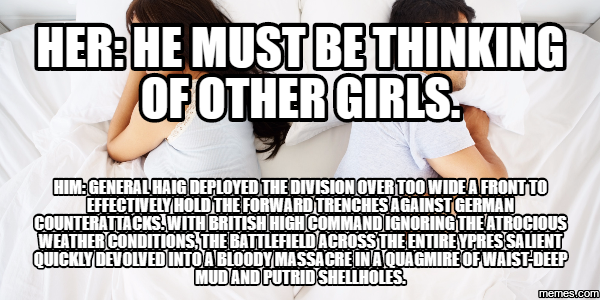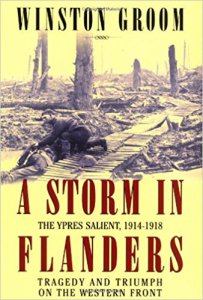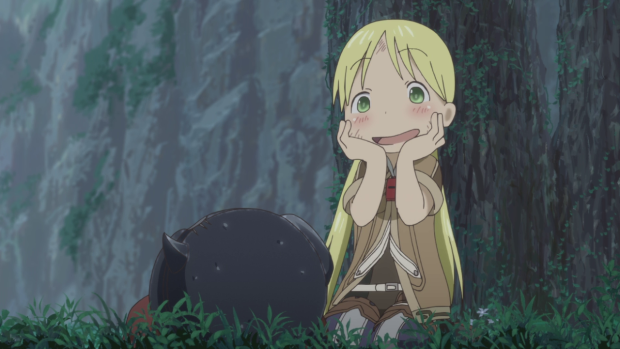The Centenary of The Great War (1914-1918) is nearly three-quarters complete. During the past three years of worldwide remembrance, the visibility and recognition level of this often-neglected conflict (stateside, at least) has improved steadily. Popular media-wise, we have already received Great War/WWI-themed popular Hollywood blockbusters (Wonder Woman, 2017), podcasts (Indy Neidell’s outstanding The Great War podcast on Youtube), fantastic non-fiction books (i.e. Dead Wake: The Last Crossing of the Lusitania by Erik Larson, Robert Gaudi’s African Kaiser: General Paul von Lettow-Vorbeck and The Great War in Africa, 1914-1918), numerous new websites and Facebook pages, etc. This Great War enthusiast is grateful for this significant uptick in popular recognition and interest, and it is and always has been my intention to make my own, however tiny, contribution to the general discussion.
Obviously, when I started this blog four years ago, it was never part of my plan to wait 44 months between posts. I’ll (mostly) resist the urge to make excuses; monumental life events happen, decisions get made to spend time doing other things, Trailer Park Boys keeps coming out with new seasons, all that tiresome rigmarole. Despite this absurdly unacceptable period of inactivity, my dedication to and obsession with this haunting historical epoch has never wavered. The more we learn, the more information we crave, and the more we share with others the greater the collective memory. To me, studying The Great War feels a lot like this meme that I may or may not have made this week.

It’s some serious historical business, folks, and the passing of a century of time changes that fact not one iota.
 Given that it’s now the 100-year anniversary of the Third Battle of Ypres, it’s appropriate timing to recommend a few great books on the topic. A Storm In Flanders by Winston Groom is a comprehensive account of all the battles and skirmishes in the Ypres salient, dating back to October 1914 and the infamous “Race to the Sea” in Belgium and Northern France. The scope and detail is impressive enough to please ardent enthusiasts and historians, but Groom’s straight-forward and engaging writing style should also appeal to the more casual history reader.
Given that it’s now the 100-year anniversary of the Third Battle of Ypres, it’s appropriate timing to recommend a few great books on the topic. A Storm In Flanders by Winston Groom is a comprehensive account of all the battles and skirmishes in the Ypres salient, dating back to October 1914 and the infamous “Race to the Sea” in Belgium and Northern France. The scope and detail is impressive enough to please ardent enthusiasts and historians, but Groom’s straight-forward and engaging writing style should also appeal to the more casual history reader.
 Focusing specifically on Third Ypres, and the horrific autumn 1917 debacle known famously as Passchendaele, the classic In Flanders Fields: The 1917 Campaign by Leon Wolff is an essential bucket-list read for the WWI buff. Wolff, who was researching and writing from the post WWII-perspective of the 1950s, writes in great (but far from tedious) detail of the key personas and spring events that led to the bloody largely-futile push to dislodge the Germans from the Channel ports. His depiction of British General Sir Douglas Haig, the frequently-derided “Butcher of the Somme,” is nuanced and balanced; one also would be hard-pressed to find a more entertaining read in a battlefield account that is thorough and detailed to every last attack and battalion.
Focusing specifically on Third Ypres, and the horrific autumn 1917 debacle known famously as Passchendaele, the classic In Flanders Fields: The 1917 Campaign by Leon Wolff is an essential bucket-list read for the WWI buff. Wolff, who was researching and writing from the post WWII-perspective of the 1950s, writes in great (but far from tedious) detail of the key personas and spring events that led to the bloody largely-futile push to dislodge the Germans from the Channel ports. His depiction of British General Sir Douglas Haig, the frequently-derided “Butcher of the Somme,” is nuanced and balanced; one also would be hard-pressed to find a more entertaining read in a battlefield account that is thorough and detailed to every last attack and battalion.
Please keep checking this page occasionally for news stories and commentary, book and movie reviews, analysis of WWI in popular culture, connections to current events, and anything Great War-related. In these challenging and anxiety-provoking times on the international scene, one could easily reflect upon the lessons learned, and those seemingly ignored or forgotten, of the great worldwide conflict of 100 years ago. Perhaps this sentiment could morph into a piece comparing and contrasting current foreign affairs with key themes in Barbara Tuchman’s The Guns of August. Until next time, take care and always remember.–Jonathan Kollnot
Advertisements Like this:Like Loading...




